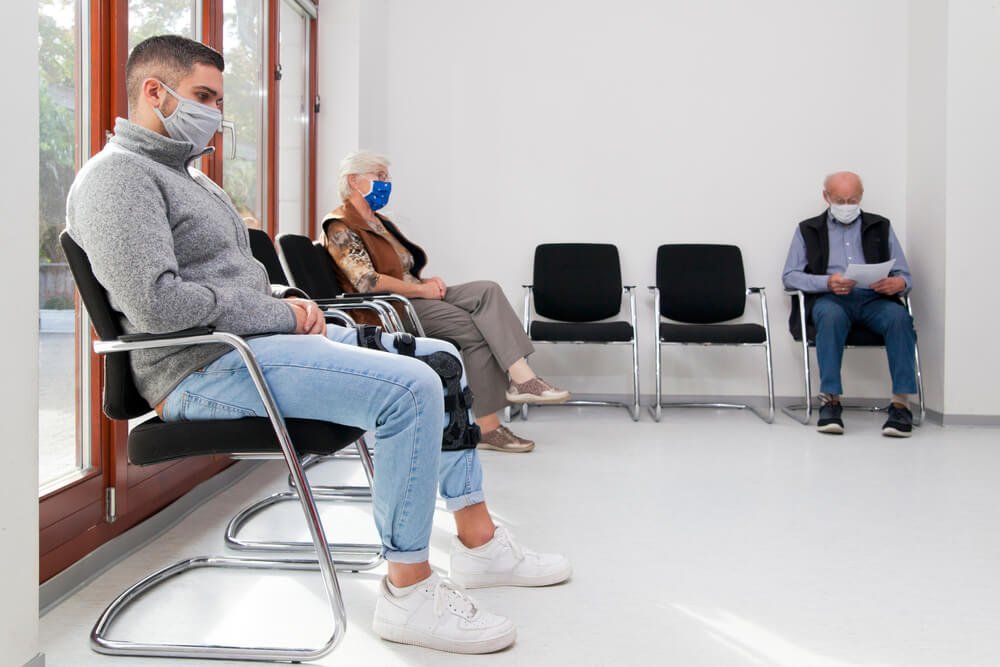NeuroStar® TMS Therapy
FDA-cleared, non-medication depression treatment
Existing Patients For Providers →
(855) 940-4867
Medically reviewed on 11/11/2020 by
Dr. Darlene Ifill-Taylor
Charlotte Regional Medical Director
Most people would drop anything to help out a loved one in need, but acting as a long-term caregiver can come at a cost they may not predict. Burnout is a very real concern for many caregivers and can eventually lead to depression. Caregiver burnout and depression can affect all areas of your life, including your ability to care for your loved one. According to one recent AARP study, 47.9 million caregivers provided an average of roughly 24 hours of care each week in 2019. Of those caregivers, 70 percent reported high emotional stress, 55 percent reported feeling alone, and 36 percent reported financial strain. It's not surprising that you would feel overwhelmed, nor is it your fault.
While caring for a family member is a labor of love—it's still labor, and emotionally taxing labor at that. If someone asked you to take on a 24/7 job—that you have to pay to do, on top of everything else in your life, you'd call them crazy. Yet, that's what being a caregiver entails, so it is natural if you are feeling burnt out. Caregivers may not have been given a choice or received training, and it is work that can feel intensely underappreciated at times. Ultimately, finding the time or emotional resources for self-care can become a challenge. So, as a caregiver, what should you do if you find yourself experiencing burnout or depression?
Caregiver burnout is a common phenomenon. In fact, the American Medical Association has an assessment tool that specifically measures caregivers' physical and mental health. You may be experiencing caregiver burnout if you're often feeling overwhelmed or exhausted, you're becoming easily irritable, or you're losing interest in activities you used to enjoy. These symptoms can overlap with those of depression. For example, if you're experiencing depression, you might have diminished interest in hobbies, struggle with insomnia, or feel overwhelming guilt or worthlessness.
There are some key differences, though. With burnout, you may feel like all of your energy has been depleted because you've already given so much, whereas with depression, you may feel like you can no longer experience joy. Burnout is a response to a stressor; depression is a mood disorder.
One key factor that differentiates burnout from depression is that burnout usually stems from an ongoing, unresolvable, easily identified issue; depression is a bit more general, and it may be more difficult to pinpoint the cause. Left untreated, however, burnout can lead to depression. And if you have a history of depression, a stressful situation like caregiving may be more likely to exacerbate depression or cause a depressive episode.
If you're feeling burned out, caring for your loved one can be challenging. You might even feel frustrated with yourself and think you shouldn't feel this way. But these feelings are natural, and you are far from alone. In a recent study, up to 80 percent of caregivers reported feeling symptoms of stress. Plus, caregiving is often for the long haul. In the AARP study, the average length of caregiving was 4.5 years, with 30 percent of caregivers providing care for at least five years. If you are in a long-term caregiving situation, it may feel difficult to make the time to care for yourself, but your health is still paramount and worth protecting.
Thanks for subscribing to our list!
Whether what you're experiencing is depression or caregiver burnout, if you believe that caregiving is impacting your mental health, it's time to get help. It's not just for you—it's for the benefit of your loved one, too. You can't be an effective caregiver if you're not also caring for yourself.
Seeking treatment is a sign of strength. It shows that you care enough about yourself and your loved one to take action, and it's one of the best ways you can care for both of you. Your first line of treatment will likely be talk therapy or medication. But don't be discouraged if the first medication you try isn't the right one for you—only about 1 in 3 people find the one for them on the first try.
But if you've tried one or more medications and you're still not feeling relief, you have plenty of other options. You may want to look into Transcranial Magnetic Stimulation (TMS), for instance. TMS therapy is a depression treatment that uses mild magnetic pulses to gently stimulate the brain and regulate mood.
Caregiver depression is common, but that doesn't mean you need to resign yourself to feeling low. There are plenty of treatment avenues to consider so you can feel better faster. Be sure to reach out to your doctor if you're experiencing signs of caregiver burnout or caregiver depression. But above all, remember that your health matters just as much as your loved one's.
Take our short quiz to see if TMS therapy or nasal esketamine could be right for you
Subscribe for mental health, self-care, and TMS therapy and nasal esketamine updates for those affected by treatment-resistant depression or OCD.
Thank you for subscribing to our email list!
Oops, there was an error adding your subscription.
Please try again later.
By providing your email address, you are consenting to receive blog updates from Greenbrook TMS Inc. You may unsubscribe from these alerts at any time by following the “unsubscribe” link at the bottom of email alerts. At Greenbrook TMS Inc. we take the privacy and security of your personal information seriously. To learn more about how we protect your personal information, please refer to our Privacy Policy.


Greenbrook supports an accessible internet. If you have any questions about our accessibility features, please contact us at
(855) 940-4867 or info@greenbrooktms.com.
All Rights Reserved | Greenbrook TMS NeuroHealth Centers.